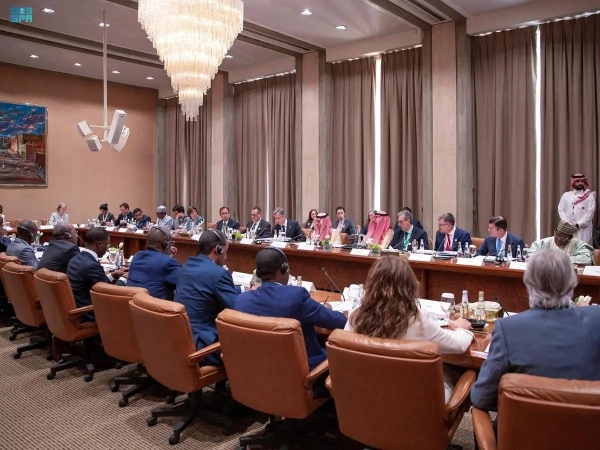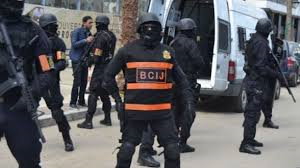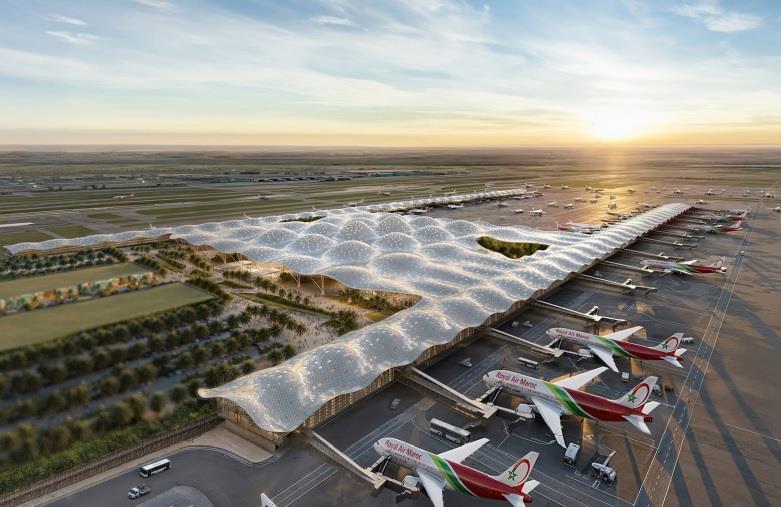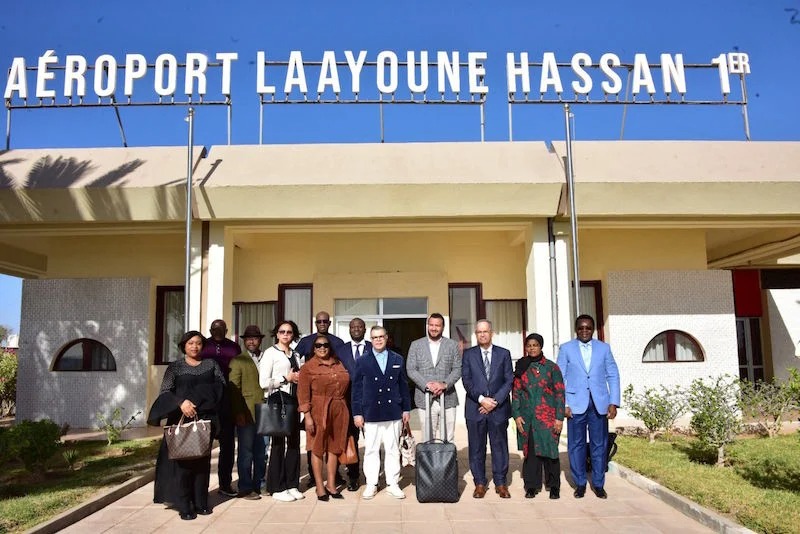Morocco has reaffirmed its unwavering commitment to international efforts to combat the terrorist threat, pursuant to the guidelines of King Mohammed VI, establishing a multidimensional approach that combines the achievement of security and peace with the goals of sustainable development and progress.
The remarks were made by a senior official of the Moroccan Foreign Ministry at the ministerial meeting of the Global Coalition against Daesh, held Thursday in Riyadh, Saudi Arabia.
The official, Ismail Chakouri, praised the coalition’s efforts, in particular the responses set out in the action plan adopted by the Africa Focus Group at its latest meeting in Niamey in March, under the co-chairmanship of Morocco, Niger, Italy and the United States of America.
This action plan constitutes a clear Roadmap towards the enshrinement of the defeat of the Islamic State (IS), as it reflects the commitment of coalition members to implement the conclusions of the ministerial meeting held last year in Marrakech, particularly regarding the identification of capacity-building priorities and needs, the confirmation of links between terrorist and separatist groups, as well as the adoption of a comprehensive approach focused on civil efforts, he stressed.
Chakouri added that achieving these priorities depends to a large extent on deploying effective responses at local level in the various hotbeds of the terrorist threat, while avoiding regional conflicts which significantly exacerbate terrorist threats.
On the other hand, he pointed out that the efforts of the global coalition have helped to roll back the terrorist threat of the Islamic State in the Middle East. This is evidenced, he explained, by the decline in terrorist attacks, the neutralization of the organization’s leaders and the drying up of sources of funding and recruitment.
Considering these achievements, the terrorist organization is tending to shift the focus of its activities to the African continent, particularly the Sahel and Sahara, where the terrorist threat is the main factor in the deterioration of stability and insecurity in the region.
In this respect, Chakouri explained that Africa is the only continent where three branches of the IS, as well as al-Qaeda, are active, in addition to 19 armed separatist movements operating in 22 countries, pointing out that in 2022, 43% of global terrorism victims were recorded in the Sahel region, compared to just 1% in 2007.
In addition, he reported an increase in terrorist attacks in the Sahel region of over 2,000% over the last fifteen years, stressing that terrorist groups continue to use advanced and modern technologies to achieve their goals, such as drones, virtual assets and encrypted communication platforms.
These data are sufficient to raise questions about the effectiveness of efforts to tackle the unprecedented expansion of the terrorist threat in Africa, as well as the reasons for the development of methods that create a fertile environment for the proliferation of the activities of transnational criminal groups and separatist movements, noted the Moroccan official.
At the end of the meeting, the participating countries issued a joint communiqué in which they welcomed the Republic of Togo as the newest member of the Coalition, bringing the total number of members to 86. Coalition partners confirmed their continued support for counterterrorism programming in Africa, Iraq, Syria, and South and Central Asia, demonstrating the Coalition’s wide reach and sustained commitment to diminishing ISIS’s capabilities.
The Ministers confirmed their commitment to enhance the civilian-led counterterrorism capacities of Coalition members from Iraq to Africa, to South and Central Asia, emphasizing border and internal security, judicial reform, and intelligence and law enforcement information sharing via bilateral and multilateral platforms, the communiqué said, adding that border security requires the preservation and sharing of battlefield evidence as appropriate with law enforcement, and the collection and sharing of terrorist and terrorist suspect biometrics via bilateral and multilateral platforms such as INTERPOL channels.
Regarding sub-Saharan Africa, the participants discussed the emergence of Daesh/ISIS affiliates which operate in West Africa, the Sahel, East Africa, and Central and southern Africa. They lauded the work of the Global Coalition’s Africa Focus Group, and highlighted the fact that it convened in Niamey, Niger in March 2023 – the first Coalition event in the sub-Saharan African region. They similarly endorsed the Africa Focus Group Action Plan, adopted in Niamey, that calls on members to cooperate in improving African member civilian-led counterterrorism and strategic communication capacities, as well as the imperative to counter malign, separatist, and non-state military actors which undercut counterterrorism cooperation and destabilize regional security.



